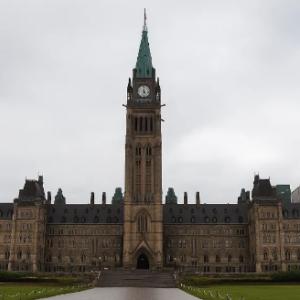Pharmacare’s future
Carney’s stance on pharmacare will show whose side he’s on — the public’s or entrenched private interests'
The night Carney won the Liberal leadership, he used his victory speech — as the de-facto Prime Minister — to push back against Donald Trump, stand up for Canadian sovereignty, and declare that, in America “healthcare is a big business. In Canada, it's a right.”
The assembled party faithful responded with raucous applause, and national newscasts ran it as a featured clip.
With no political track record to speak of, Carney’s commitment to national pharmacare will test the substance behind his potent applause-line.
Canada is the only high income country with a universal healthcare system that does not have a universal drug plan. This, despite decades of reports, studies, special commissions and calls-to-action to catch-up to the rest of the world.
One of the major stumbling blocks has been the power and influence of those that benefit from an expensive, complicated and inefficient system that leaves millions of people out. Industry balance sheets and government relations campaigns pull back the curtain on who these players are: lobbyists from the private insurance industry, and brand name drug makers.
They’re even trying to use Trump’s trade war as an opportunity to increase drug prices — even more.
Canadians have much to gain from a comprehensive, universal and public pharmacare program. Namely, access to lifesaving medications for millions of people, and reducing billions of dollars of wasteful spending.
Canadians pay some of the highest drug prices in the world. We’re getting a raw deal from drug makers. And whether or not you actually have a private drug plan, government subsidies for insurance companies mean you’re paying for those who do.
Negotiating fair deals with drug makers and reducing subsidies to already profitable insurance companies are two of the many ways a public and universal pharmacare program can bring down healthcare costs. The type of plan policy experts and advocates have been calling for include these, and other measures too.
There are reasons to be optimistic. It was under the recent confidence and supply agreement between the governing Liberals and opposition NDP that the October 2024 Pharmacare Act was passed. Four provinces and territories (BC, Manitoba, PEI and the Yukon) have already signed on to expanding Medicare to prescription drugs for diabetes and birth control.
But of course, the work is far from finished. Nine jurisdictions remain, and future expansion needs to include other types of medically necessary medications.
Mark Carney is no stranger to the corporate world. In addition to being the Governor of the Bank of Canada and the Bank of England, he was Chair of the largest investment management firm in the nation.
When Mark Carney says healthcare is a business, he understands this in a way many of us never will. What remains to be seen is where he will eventually settle on the politics of profit-vs-care.
For decades, his predecessors have sided with big business, until a minority Parliament forced a deal that has inched pharmacare forward. His comments during the campaign on the unfulfilled potential of pharmacare have been ambiguous at best. His party’s former partner on this file, the NDP, has promised to expand the list of drugs covered by pharmacare within four years.
If Carney is to be Canada’s choice for Prime Minister — and he truly believes healthcare is a right, not a business — now’s his chance to prove it.
---
Dr. Danyaal Raza is a family physician at St. Michael's Hospital, and Assistant Professor at the University of Toronto. Follow him on Bluesky, @danyaalraza.com.









